Why the Oleg Kabov case could change the fate of Russian science

T-invariant regularly talks about criminal cases brought against Russian scientists. And, at first glance, the case initiated by the FSB against corresponding member of the Russian Academy of Sciences, head of the laboratory of the Novosibirsk Institute of Thermophysics Oleg Kabovis from the same series. Actually this is not true. For the first time in Russia, a scientist is being judged for the scientific result itself, an assessment of which experts differ. Scientific and technical expertise in this criminal case does not play the illustrative role of an additional argument, but forms the basic part of the accusation. And the judge will have to delve into the scientific problem and the way it is assessed: the words of a materials scientist and economist versus the words of dozens of thermal physicists. But even if the examination ordered by the investigator were impeccable and independent, the fact that you can go to prison for a poorly conducted study is a new page both in the history of Russian science and in the history of domestic jurisprudence. In this sense, Kabov’s case is a challenge to the entire scientific community. It will show whether science in Russia can defend its right to exist. Read more in T-invariant’s investigation.
What is Oleg Kabov known for
In 1978, after graduating from the Tomsk Polytechnic Institute, Oleg Kabov went to work in Novosibirsk, at the Institute of Thermophysics of the Siberian Branch (SB) of the Russian Academy of Sciences named after. S.S. Kutateladze. Subsequently, he defended his candidate’s and then doctor’s dissertations there. In 2000, Kabov headed a scientific group studying two-phase systems at the Free University of Brussels. During his work, Kabov received international recognition in the fields of mechanics, thermodynamics, heat flow and evaporation. Published in highly rated scientific journals, his work is constantly quoted by colleagues all over the world. In addition, Kabov headed the international scientific publication Interfacial Phenomena and Heat Transfer.
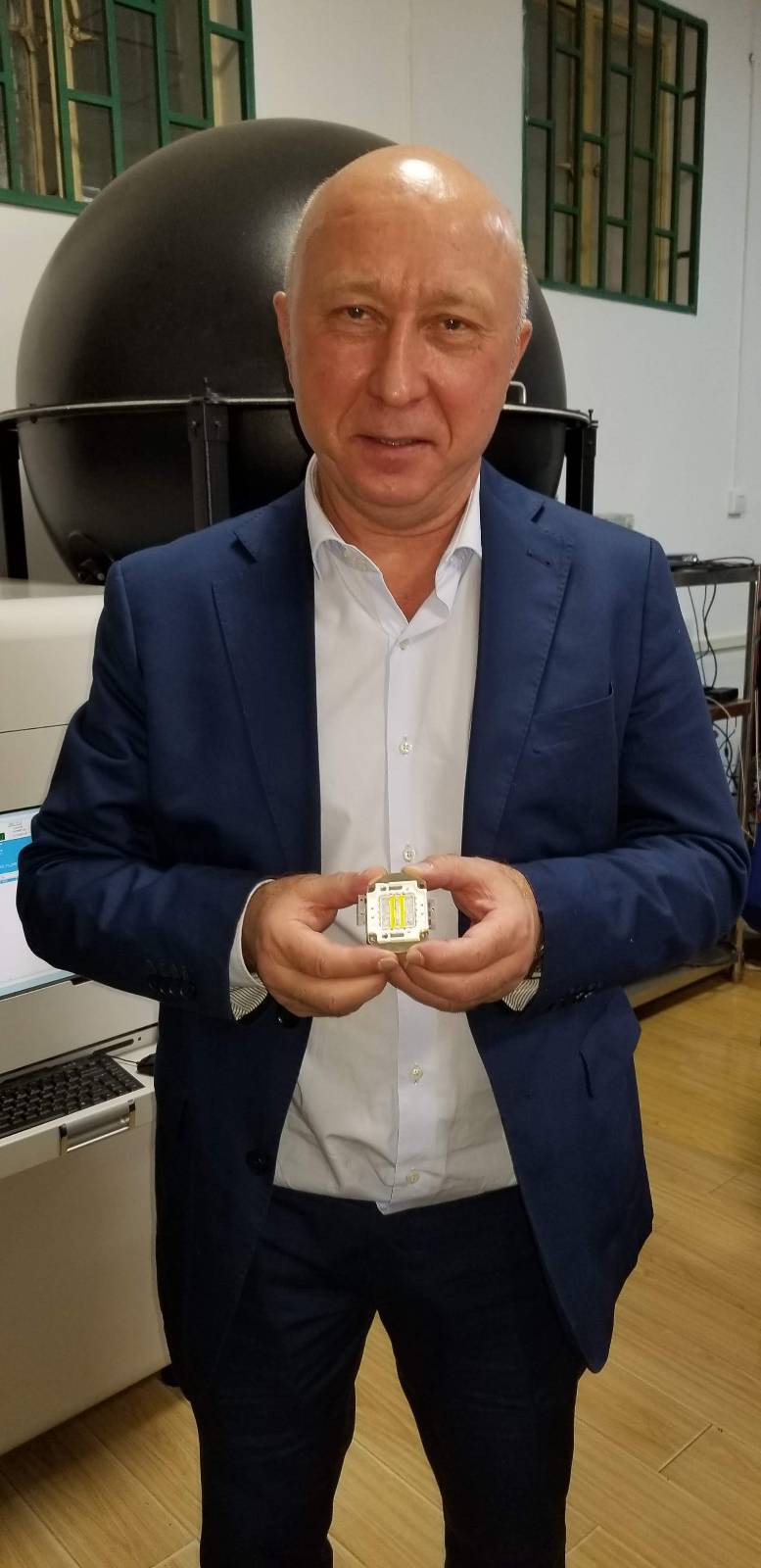
Oleg Kabov
In 2012, Kabov’s Belgian contract expired, and he, along with several colleagues, decided to return to Novosibirsk. At that time, scientific “returnees” were not uncommon: in the 2010s, “oil money” flowed into Russian science, new opportunities appeared, development programs, money to update the instrument base, and promising projects were launched. And those who did not want to retire at the required European age of 65, thought in advance about creating new structures in their homeland using foreign experience. Fortunately, the structure of Russian science and the shortage of qualified personnel allow us to work until “until death do you part.”
In April 2013, Kabov and his family were already in Russia. In the autumn of the same year, the RAS reform , and in March 2014 — the annexation of Crimea with subsequent sanctions. These two events seriously influenced the development of scientific directions related to the instrumentation base of experimental sciences. In order to organize work more efficiently, the laboratory, headed by Kabov, decided to create its own fund from the personal funds of employees. The money from this fund was used to repair premises, support young scientists, and repair equipment.
— Let’s say we are doing an experiment and we need to quickly make some part, explains one of laboratory staff. — You write an application, pay from the fund, and your head doesn’t hurt. Or something needs to be repaired. The institute does not have money or it is very difficult to get it, but here we ourselves, at the expense of the fund, quickly carry out repairs and fix everything. Thanks to this fund, we had good working conditions. One day I needed to quickly go to a conference in Tomsk, but there was no money for this in the institute’s budget. I spent my money, but then they reimbursed me from our fund. The fund was a very convenient tool in a complex state bureaucracy.
Kabov’s team won several competitions, in particular, one research project (R&D) from the Federal Target Program “Research and development in priority areas of scientific development technical complex of Russia for 2014–2021″. The main goal of the project was the development and creation of an experimental sample of an evaporative cooling system for heat-stressed elements. In 2016, the project ended, and based on it, five patents were obtained and 24 articles were published in high-ranking journals. The results were highly appreciated by experts from the Ministry of Education and Science, specialists in the field of thermophysics. In January 2022, Kabov was elected a corresponding member of the Russian Academy of Sciences — for scientific achievements obtained, in particular, as a result of that very project.
Re-checking work
In 2017, the research report for the ministry was adopted with a number of minor comments regarding the reporting format. But already in July 2018, the FSB became interested in the report and began checking its documentation. Intelligence officers sent inquiries to the Institute of Thermophysics. Having received a response from the director of the institute, Dmitry Markovich, they realized that they could not cope with this matter themselves, and requested help from their Moscow colleagues. As a result, in March 2020, the then director of the department of state scientific and scientific-technical policy of the Ministry of Education and Science of the Russian Federation, Mikhail Romanovsky, unexpectedly ordered the Republican Research Scientific Consulting Center to conduct an examination (RINKCE) checking the report on Kabov’s project (available in the case file). That is, by a strange coincidence, the department of the Ministry of Education and Science, which is responsible for evaluating and accepting scientific projects, doubted the results of its own work and made an uncharacteristic administrative decision: to test itself with the help of another structure of its own department.
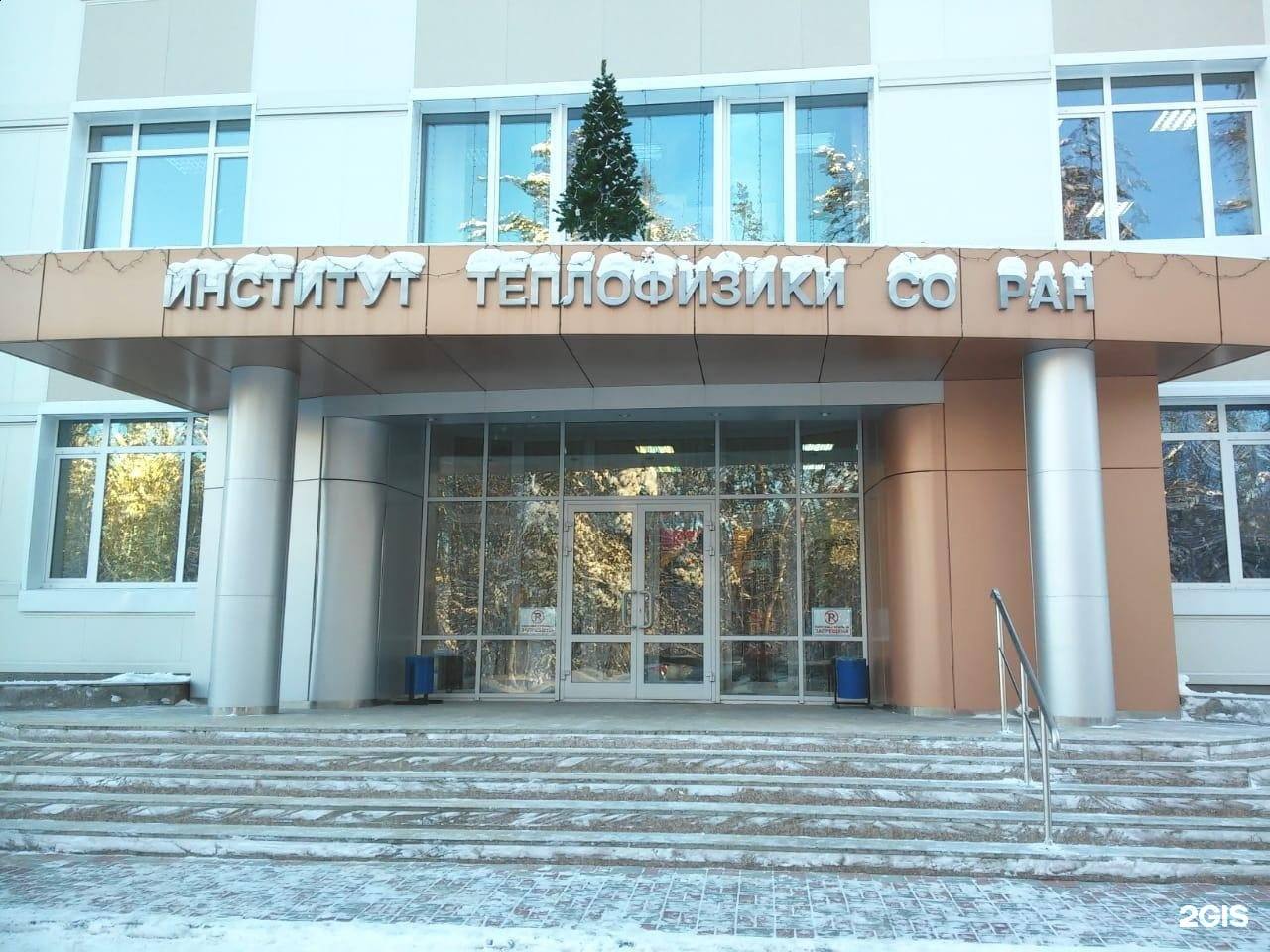
Institute of Thermophysics named after. S. S. Kutateladze SB RAS
Info
The Federal State Budgetary Scientific Institution “Research Institute — Republican Research Scientific Consulting Center of Expertise” (FGBNU SRI RINCCE) was created in 1991 as a multidisciplinary expert organization. It is administered by the Ministry of Science and Higher Education of the Russian Federation. In the description of its activities, in addition to the main task — organizing and conducting state examination of scientific, technical and innovative projects — it also includes the implementation of measures to ensure national security. These tasks are being implemented with the help of federal experts. Currently, 4,538 people are accredited in the RINCCE expert database. Their activities are carried out on the basis of regulations about the Federal Register of Experts in the Scientific and Technical Field, according to which “Register experts do not have the right to undertake obligations to participate in legal proceedings as an expert in the Federal Register.”
Why was the head of the department Romanovsky not satisfied with the competence of specialists in thermophysics: Doctor of Technical Sciences Leonid Directorfrom the Joint Institute of High Temperatures of the Russian Academy of Sciences and Candidate of Technical Sciences, Director of the Center “Power installations” NAMI Alexey Terenchenko who carried out an expert assessment of Kabov’s project based on the research report on the instructions of his own department of the Ministry of Education and Science — but he turned to the RINKCE experts, and was pressure put on him? We don’t know this. But RINKCE, of course, responded to the needs of colleagues and assigned two candidates of technical sciences to study Kabov’s research: Valery Zotov and Alexander Fuchs. They concluded: the purpose of applied scientific research under the Agreement dated August 27, 2014 No. 14.613.21.0011 on the provision of a subsidy“is completely unattained.”
Thus, in March 2020, FSB officers had two opposing expert opinions on Kabov’s project. One positive thing comes from thermophysicists. The second negative one comes from the military from the RINCCE expert database. It is important that both of these expert opinions were not judicial and, from a legal point of view, weighed equally little.
Then there was a pause of two years. It would seem that the matter has reached a dead end. But in September 2022, First Deputy Head of the 4th Directorate of the Service for Counterintelligence Support of Industrial Facilities of the FSB of the Russian Federation D.S. Derevyashkin sent to the head of the FSB of Russia for the Novosibirsk region S.N. Sizov materials containing signs of theft in 2014-2016 of funds from the Ministry of Education and Science of the Russian Federation in the amount of 26,750,000 rubles allocated to the Institute of Thermophysics SB RAS “for the development of experimental samples of equipment in the field of thermophysics.”
Novosibirsk FSB officers immediately resumed the pre-investigation check. On October 13, searches took place and confiscation of not only documentation, but also installation parts. For example, these:
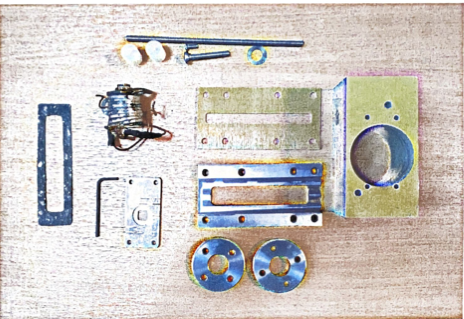
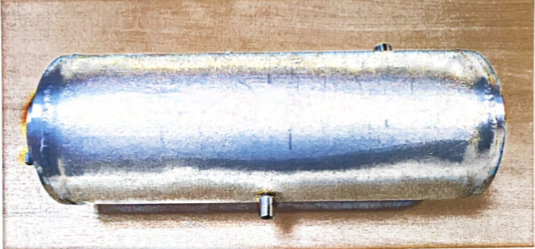
Device seized during the search
On the same day, Kabov was placed in a pre-trial detention center. On November 2, 2022, a criminal case was initiated under Article 159 (Part 4) of the Criminal Code of the Russian Federation (fraud committed by an organized group or on an especially large scale). According to the investigation, the head of the lab received money in August 2014 to carry out the work, did not carry out the work itself, falsified the reports, and embezzled the money.
Two months spent in a pre-trial detention center did not break Kabov. Despite the pressure from the investigation, the scientist rejected all charges and did not admit guilt. Then the investigator again sent a request to conduct a comprehensive scientific and technical examination to the already known to us RINCCE. In March 2023, a response came from there signed by Ivan Chernov and Elena Berezina: the Kabov laboratory’s project to create the technology was only 37.76% completed. Only now, after the initiation of the case, the status of this examination, unlike the previous ones, was completely different — judicial. The investigator considered it sufficient to bring criminal charges against Kabov.
Kabov was released from the pre-trial detention center under house arrest, and in September 2023 the preventive measure was changed to a ban on certain actions: continuing scientific activities at the institute, communicating with colleagues, as well as with representatives of the Russian Academy of Sciences and Ministry of Education and Science.
In November 2023, the investigation brought a new version of charges — for misappropriation of only 7,268,424 rubles. This time, the investigation considered that Kabov did not steal all the subsidy money, but only those that were paid as a bonus for successfully completed research work. Kabov and his colleagues transferred these allowances to that same private fund — for the needs of the laboratory. But, according to investigator Zaderev, the bonuses were paid illegally, since the project was allegedly unsuccessful.
On April 3, 2024, the trial began. During the year and a half of the investigation, the defendant was interrogated only once — on the day of his arrest.
Five questions and one answer on the Kabov case
The first questionthat arises when getting acquainted with the details of the charges against Kabov is simple: why did the investigator of the Novosibirsk FSB department even decide to read one old research report? In Novosibirsk, dozens of such reports are submitted by various institutes per year. If you start studying them all and assessing their effectiveness, there will not be enough personnel from the FSB and RINCCE. Moreover, Kabov’s laboratory has successfully won more than one grant. Maybe someone advised the investigator to pay attention to him?
The second question, which is obvious against the background of other FSB cases against Novosibirsk physicists: why did the FSB become interested in open, fundamental work and did not try? turn them retroactively into espionage in favor of Japan or Belgium, not falsified donations in favor of the opposition, did not accuse anyone of treason, did not found in the doorwaywho has dual-use technology, as was the case in other cases? In the Kabov case, a political motive never arose, although formally the biography of Kabov, with his international experience and many years of cooperation, falls in the same row as those of the notorious “hypersonics” or in case of Sergei Abramov. However, this plot does not appear either in the case materials or during the interrogations of Kabov and his colleagues. It seems that someone who knew for sure that there was and could not be any political motive in Kabov’s actions was involved in initiating the case. And I didn’t even want it to arise.
The third question, which inevitably arises in connection with the accusation: why didn’t the FSB investigator try to turn the Kabov case into a fraud organized by a group of people? After all, the report is compiled by the entire laboratory.
It is possible to fail a project, falsify a report and divide money in an experimental area only together, in collusion with other employees. However, only Kabov was charged.
Fourth question: why didn’t the investigator, after a pre-investigation check, transfer a fairly simple case of a boss misappropriating money from subordinates to the Ministry of Internal Affairs, as usually happens?
And finally, the fifth question. Why, after changes in the wording of the charges from the misappropriation of 26,750,000 rubles, received from the Ministry of Education and Science for the misappropriation of 7,268,424 rubles received from employees for the laboratory fund, is the ministry still the victim in the Kabov case? After all, we are already talking about appropriating money from colleagues. If at the investigation stage Kabov’s lawyer and the laboratory staff managed to convincethe investigator that the technology was created, if it was possible to demonstrate its presence, the investigator should have closed the case. But he admitted: yes, the technology was created, but not exactly what was needed, so Kabov still stole the money, although not all of it. The investigation insists that Kabov is guilty in any case, and leaves the ministry to the victims.
For answers to these questions, we turned to Kabov’s wife, Elena Fedorovna, and a number of his colleagues. Moreover, the criminal trial is open, and judge Gennady Gushchin did not impose a ban on communicating with the press on any of its participants.
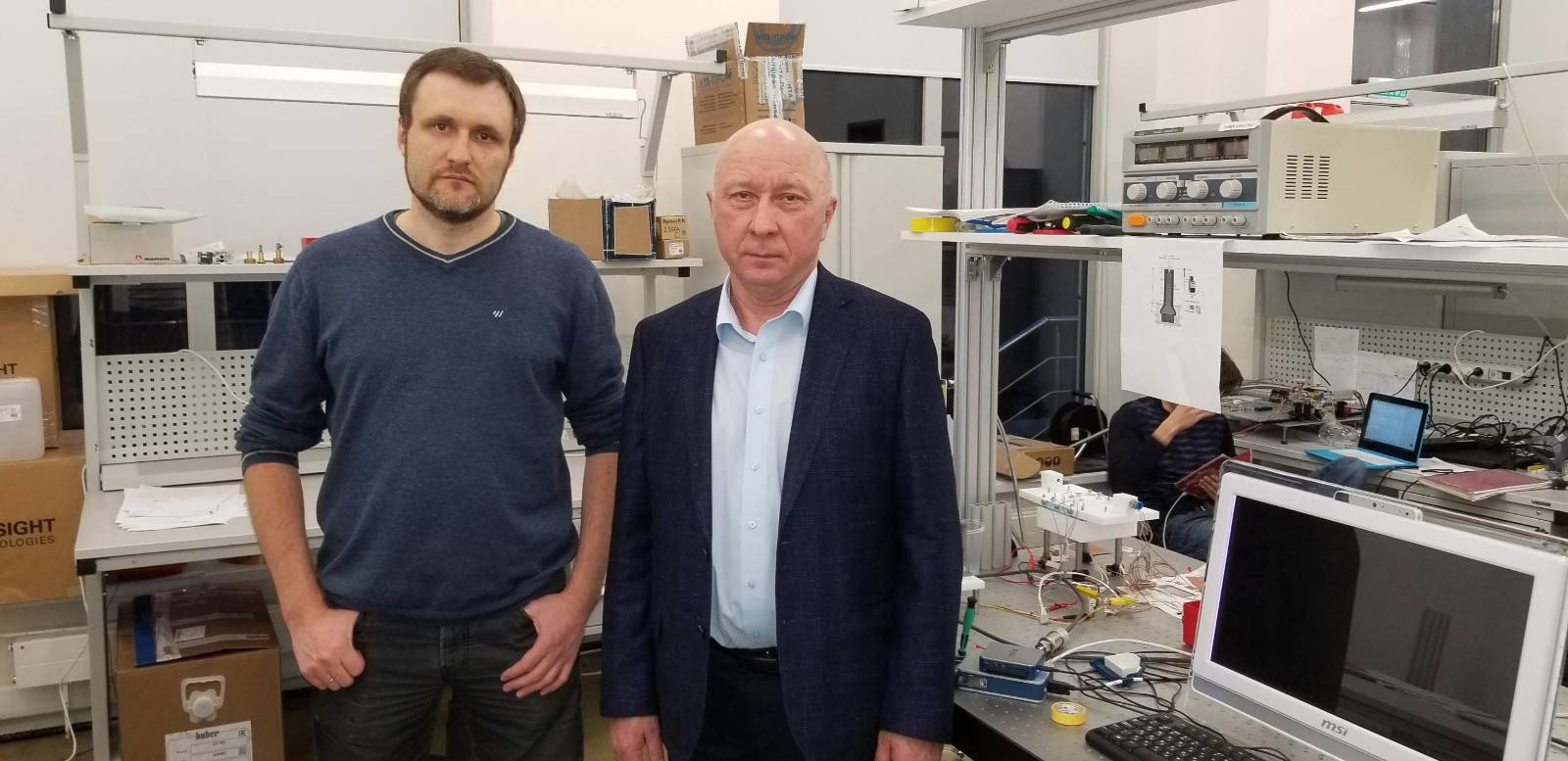
Oleg Kabov in the laboratory
Almost all the interlocutors interviewed by T-invariant indicate that the basis of this criminal case is personal revenge against Kabov on the part of a former laboratory employee, who had a conflict with the head of the laboratory over money . We are talking about a former physicist who took part in precisely that project to create cooling technology and was not happy that the bonuses for successfully completed work went to the laboratory fund. According to our interlocutors, he left the laboratory after 2017, went to work for the FSB and threatened Kabov that he would return to the institute, but under different circumstances.
The very fact of leaving physicists for the intelligence services is now not uncommon. “My colleagues and I were repeatedly offered to transfer from graduate school to their department, they gave reasons,” says one of the researchers working in Kabov’s laboratory. “But every time I answered that I had an interesting job, a decent salary and I wanted to do science.” Perhaps among those who left our laboratory dissatisfied was the person whom they convinced to join the authorities.”
Thus, everything comes down to a person who was aware of the details of this project and wanted to take revenge on Kabov personally, and not on his other colleagues. As one of the lawyers who works with cases initiated by the FSB and who wished to remain anonymous assures, not all denunciations are grounds for initiating a criminal case. But in the case of Kabov, we are obviously talking about who knows exactly how to ensure that the opened case remains in the hands of FSB investigators. After all, for this to happen, it was the state represented by the ministry that had to remain the victim. In case of fraud against private individuals, the case would have to be transferred to the Ministry of Internal Affairs. And then, with weak evidence baza, the prospect of bringing it to trial would be significantly less than in the case initiated by the FSB.
Judicial practice in recent years shows that cases initiated by the FSB almost never “die” at the investigation stage.
This version answers the questions posed above. But it does not answer the main question: why the scientific community, represented by the long-established system of scientific expertise of the Ministry and the leadership of the Russian Academy of Sciences, failed to protect its colleague and its project from the personal revenge of a young FSB employee who decided to start his career in the authorities by denouncing a former scientific director ? And was this possible in principle?
In any case, it is scientific expertise that plays a key role in Kabov’s case. It contains the accusation itself. Perhaps that is why the investigator did not insist on conversations with the accused for a year and a half. He has already read everything he needs in the examination.
Expert Misadventures
The forensic examination in the Kabov case is 80-page document, prepared by two employees: Deputy Director of RINKCE, Candidate of Economic Sciences Elena Berezina and materials scientist, Doctor of Physical and Mathematical Sciences, Professor at MEPhI Ivan Chernov.
The investigator asked the experts three questions: what was the actual scope of work completed on the project, what was its cost, and did it comply with the technical specifications of the project? Specifically, the investigation was interested in the following: the physicists took 26,750,000 rubles from the state, represented by the Ministry of Education and Science, for three years and promised, according to the terms of reference, to create a unique technology for cooling heating elements. Did they really create it? And if not, how much is what they spent the money on? And how does what the Novosibirsk physicists presented as a report to the Ministry of Education and Science compare with what they were going to do?
The first question (what is the actual scope of work completed on the project) falls exclusively within the competence of specialists in the narrow field of thermophysics. Why metals and composite materials specialist Ivan Chernov decided to answer the question about cooling technology remains a mystery. But the only question he could definitely answer was the third one — about the compliance of the actual work with the technical specifications. Here he could show his awareness and explain to the investigator what research work is — scientific research work, in which the word “research” plays a key role. Chernov should have told the intelligence officer that research is a type of activity where there are expected or expected results, but not exactly planned ones. When you know exactly what you have to build as a result, you are an engineer, not a scientist. If a civil engineer took money from the state to build a kindergarten, but during the work “something went wrong” and it turned out to be a nightclub, this is a serious violation. If an experimental scientist expected that it would be possible to make one technology, but it turned out to be slightly different, this is the norm. And if it doesn’t work out at all, this, alas, is also the norm for science. Metallurgist Chernov could not have been unaware of this. And he should have pointed out to the investigator the unlawfulness of such a formulation of the question. In science, a discrepancy between a result and expectations is not only a matter of jurisdiction, but even a negative event.
A negative result can be much more useful than an intended positive one. Successful results in science are achieved at the expense of previous erroneous ones.
In this regard, the situation is even more complicated with the answer to the second question, which economist Berezina decided to clarify: how much does what Kabov’s laboratory did actually cost? It is very difficult to evaluate the results of research in money. Because no one can say what exactly will come out of the presented technology, how quickly it will become possible to use it for practical purposes, how this groundwork will be used in other scientific works of graduate students or students who will defend their dissertations in the process of developing this technology. Therefore, the evaluation of research work is carried out not according to the principle “how much does what you came up with cost”, but according to the principle “what happened and what can happen based on what you came up with.” This is not a question of material, but of intellectual assets. There are research projects that are very cheap financially, but extremely rich in the advancement of knowledge or economic results — and vice versa. Economist Berezina, who heads the department of scientific and technical expertise at RINKCE, could not help but know this. And the investigator should have indicatedI think that the formulation of the second question is also incorrect.
Then an ignorant investigator would have a question: what happens, scientists can take subsidies from the state for their fantasies, and then throw up their hands, say that nothing worked, and they are will it be nothing? And Chernov and Berezina would have told him that all over the world there is an established practice in this regard, which, although not without sin, works. If a scientist regularly produces low or negative results on grant work, the expert community already knows that his qualifications are not good enough and does not recommend funding his projects. If this scientist is also suspected of falsifying the results, then various scientific ethics commissions are involved in the case, which determine whether the actual unsuccessful results were deliberately or mistakenly presented as the desired successful ones.
The key concept for assessing the activities of a scientist is reputation. This also works in other areas where non-refundable money is involved. It is easier for the author of successful plays, films, and novels to find grants for the creation of future works. It’s more difficult for those who don’t have a history of success. But usually a poet is not imprisoned for writing an insufficiently good collection of poems. The funds that finance literary scholarships simply won’t give him money next time. In any case, in creative fields in a broad sense, failure is not a criminal offense, although this does not mean that the one who fails will get away with anything. Therefore, it is not the job of the security forces to evaluate the quality of scientific, theatrical and literary works.
In this imaginary discussion, the investigator would immediately point to case of Berkovich and Petriychuk. But Berezina and Chernov would object that the director and screenwriter are not accused of creating an insufficiently good performance and wasting public money, which could have been used to do something more interesting. They are accused of justifying terrorism by creating a spectacle.
But there was no such fascinating dialogue. The experts simply wrote a predictable answer to the investigator, received money for it, and forgot to tell the main thing: only thermal physicists can correctly evaluate the scientific result of Kabov’s laboratory. This means that both of them: neither Berezina nor Chernov, should have, in principle, taken up forensic examination.
Went through the stages
T-invariant decided to ask Chernov and Berezina whether material reward for comprehensive scientific and technical expertise is the only motivation for their actions, whether there was pressure on them from the investigation. Chernov first confirmed that it was he, Ivan Ilyich, who was talking to our correspondent on the phone, but when he heard what exactly they wanted to ask him about, he immediately identified himself as another person, Chernov’s brother, who knew nothing about the Kabov case, and interrupted the conversation . And Elena Berezina refused to answer T-invariant’s questions, citing the fact that she gave the investigation a non-disclosure agreement regarding the details of the case. Thus, we do not know the motivation of experts to take on a task in which they are not competent, but we do know how they completed it. Both cite the fact that their peer review methodology has already been successfully used in five criminal cases, initiated from 2020 to 2022 Investigative Committee, Investigative Directorate of the Ministry of Internal Affairs and the FSB Directorate in Perm, Ivanovo, Mordovia, Belgorod and Moscow regions. However, according to the lawyers we interviewed, among the criminal cases against scientists, cases from the named regions with such numbers do not appear. Does this mean that we are dealing with “touring” experts who provide the expected services for various law enforcement agencies? Does this mean that this expert assessment technique applies to all types of activities in a row: construction, sports, financial, theater?
We will try to answer this in the continuation of our investigation, but for now let us pay attention to the very methodology by which Chernov and Berezina assessed Kabov’s project. In their conclusion, they referred to three scientific papers on which it was based. The essence of the technique is this. Kabov’s research is divided into five stages. We evaluate the implementation of each stage using certain formulas, calculate the percentage of work completed and compare it with the amount of costs. In a condensed form it can be describedlike this: the scientist took money from the state for a year to prove the theorem. In the first quarter it was not possible to prove it, which means the result of implementation was 0%. The second one also failed — the execution result was 0%. In the third — he proved it. By stages, the feasibility of the project is 33.3%, i.e. less than half. This means that the project cannot be considered completed, and the amount of damage to the state is the amount of the subsidy. This is roughly what the experts reasoned when they answered the investigator’s first question about the degree of feasibility of the project: Stage 1 was completed by 50%, Stage 2 by 15% Stage 3 by 30%, Stage 4 by 50%, stage 5 — by 14%.
The conclusion reached by Chernov and Berezina: “The examination has established that an experimental model of an evaporative cooling system for heat-stressed elements using single-component two-phase flows has not been created.” Thus was born the charge of fraud on an especially large scale (26,750,000 rubles).
Why this methodology for assessing the effectiveness of existing production and economic systems is not applicable to Kabov’s project was indicated in response to a lawyer’s request in the Kabov case, Doctor of Technical Sciences, Professor Bulat Nigmatullin and Academician of the Russian Academy of Sciences, Professor Robert Nigmatullin. They analyzed in detail the three works on which Chernov and Berezina rely, and came to the conclusion: “the developed methods in all branches of science are preliminary in nature, have not been approved by RINCCE itself and make it possible to form irrelevant assessments of scientific activity.”
The same technique, at the request of lawyer Shishebarov, was analyzed by Oleg Tsvelodub, chief researcher at the modeling laboratory of the Institute of Thermophysics. He showed errors not only in the methodology, but also in the calculations , which Chernov and Berezina used, and explained that “the methodologically incorrectly introduced concept of the actual amount of work completed for the entire project and its incorrect value of 37.76%, calculated using flawed and unclear methods of experts, appearing in various court documents, give me the moral right to believe, that the expert opinion was performed poorly. The actual amount of work to develop the methodology and its application to analyze completed work and project stages, acting in the spirit of the experts’ methodology, can be estimated at 0%.”
But in the case of Kabov, we are not talking about theoretical work. The results of the research work were presented not only in the form of patents, scientific publications, defended master’s and candidate’s theses. The main thing that Kabov’s laboratory presented was the stand itself with the technology. And it was his absence, as investigators believed, and then his presence that became the reason why the charge of embezzlement of 26,750,000 rubles was dropped. Then why wasn’t the case closed for lack of evidence of a crime?
Because in addition to the incorrect methodology on which the examination is based, there is another key point: the accusation that the cooling technology declared in the project is not exactly what was promised. That is, the performance was not good enough. In particular, because the foreign partner — a participant in the project — did not fulfill its obligations.
Samurai word
According to the terms of the project, the foreign partner is a world-famous scientist, head of the department of aeronautics and astronautics at Kyushu University, a Japanese professor Haruhiko Ohta — had to supply a thermal element to the cooling system at the Institute of Thermophysics. The Japanese had to do it at their own expense. But the heating element was not provided to Russia. Instead, Siberian physicists made their own. What experts point out when assessing the 3rd stage: “The delivery of a working section with a controlled array of microheaters from Japan to Novosibirk has not actually been completed.”
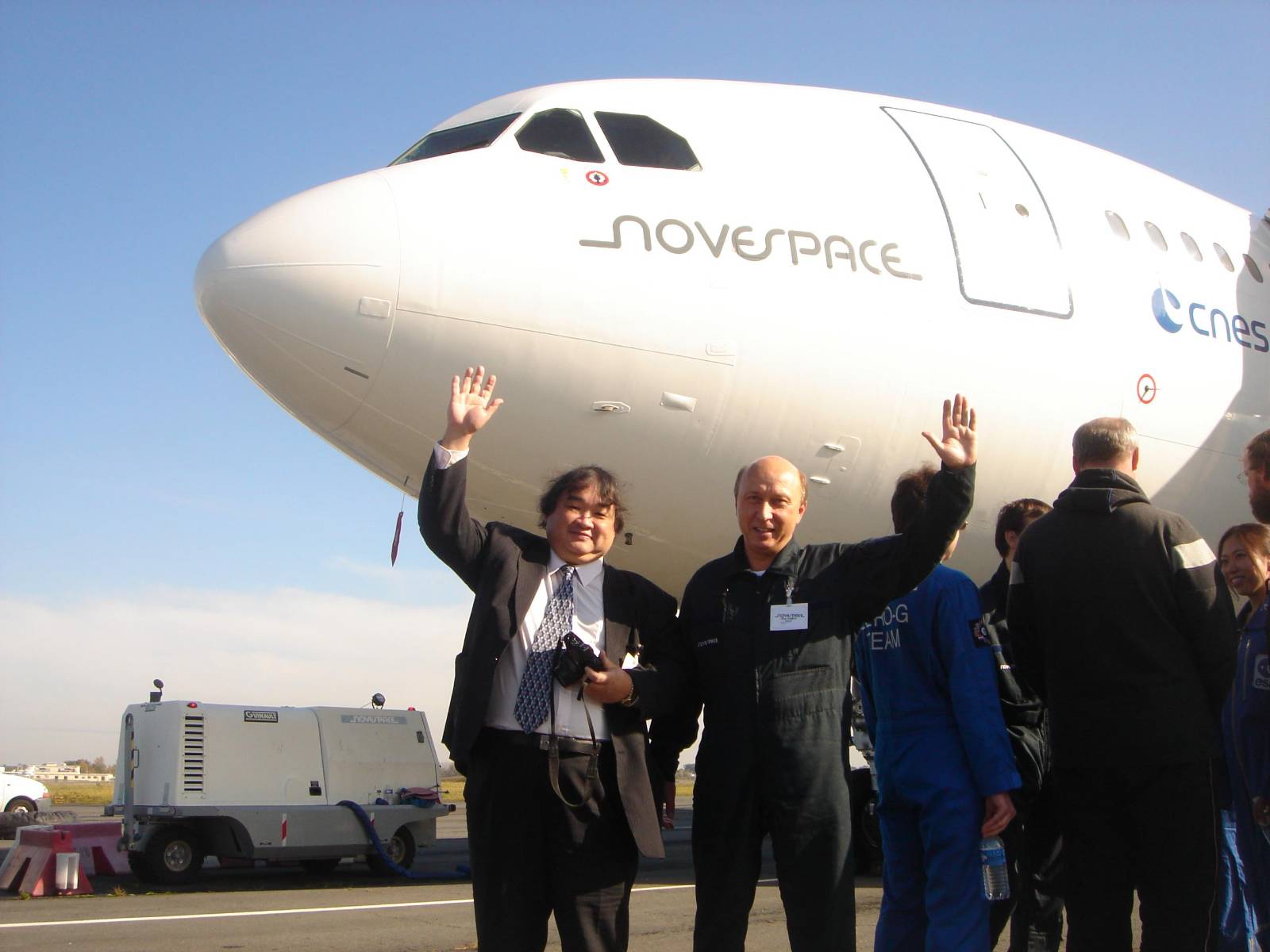
Oleg Kabov with his Japanese colleague
The fact is that in 2014 the Japanese government responded to the annexation of Crimea by imposing sanctions against Russia. And as a result, as reported in his report Oleg Kabov, “the foreign partner was unable to provide the heating element he manufactured for experiments on the territory of the Russian Federation due to the embargo imposed by the Japanese government. The partner provided all the necessary technical information to the cellthe mines of the Laboratory of Intensification of Heat Transfer Processes of the IT SB RAS, and the project executors manufactured a similar heating element on their own.” That is, scientists from both countries found an opportunity to continue their work under new conditions set by the authorities. It was a classic scientific collaboration that successfully completed its tasks: as a result, Japanese and Russian physicists published joint articles.
But this was not the end of the interaction with the Japanese. Two years later, Professor Haruhiko Ohta kept his word: he found an opportunity to bring that same heating element to the conference and hand it over to his Novosibirsk colleagues. The device is still in the laboratory; no one is hiding it. Why is there no data about him in the expert report of Chernov and Berezina? This is another question to which I would like to receive an answer from the authors of the examination during the trial.
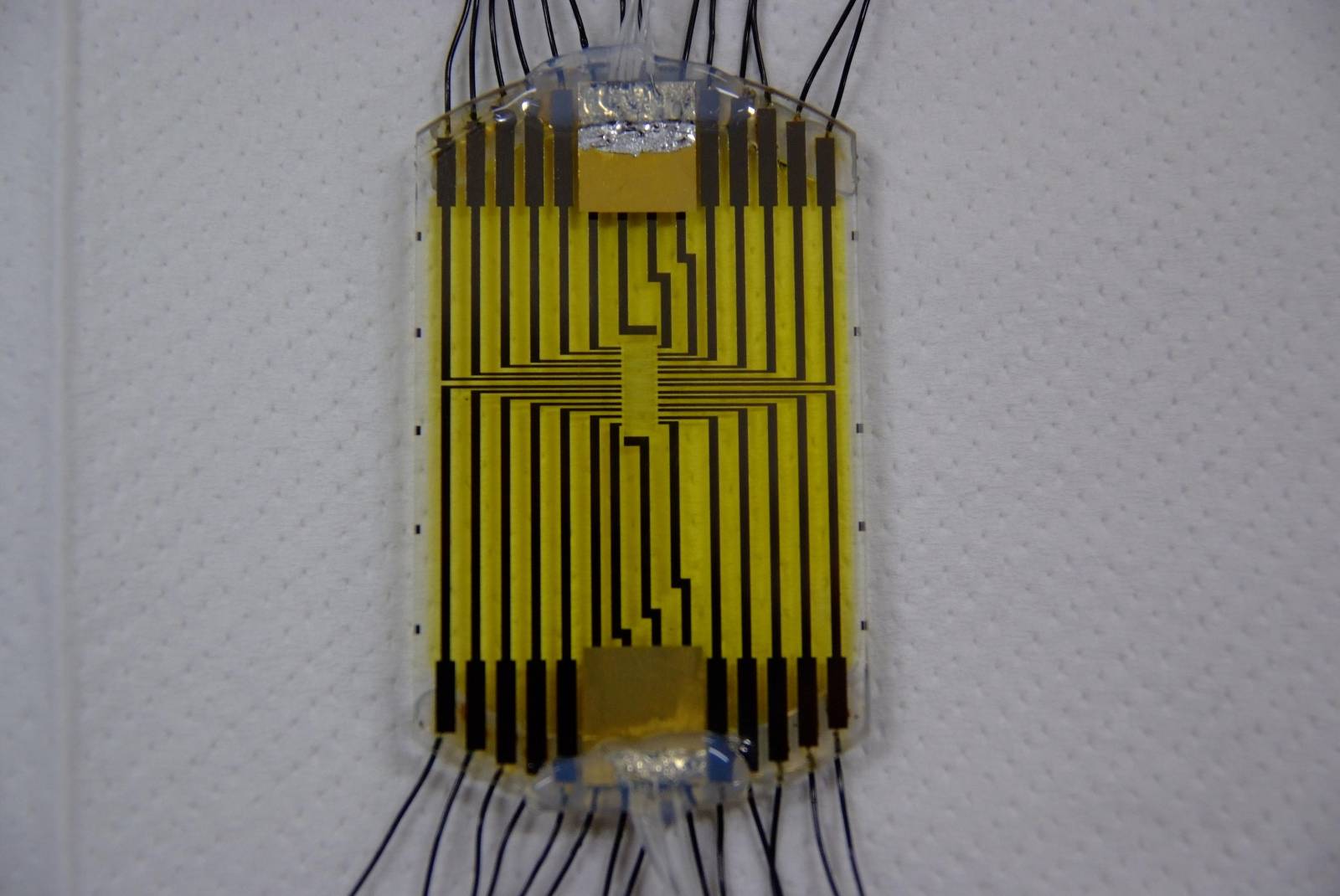
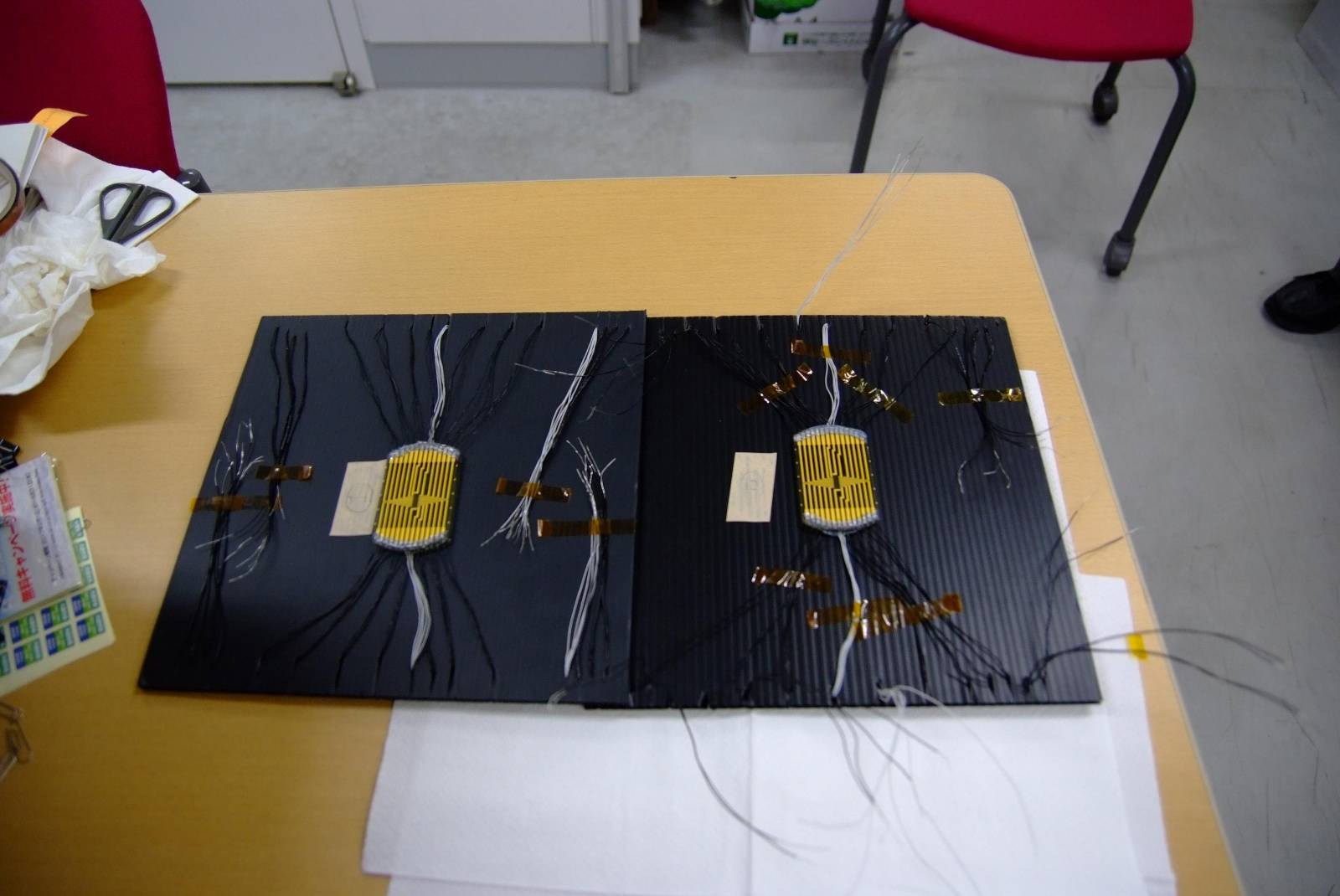
Heating element from Japan
Academic bunnies
On March 25, 2023, the Institute of Thermophysics hosted unusual seminar, which was attended by 11 members of the RAS, 21 doctors of science, 23 candidates of science and nine young scientists. The purpose of the meeting is to conduct a comprehensive and impartial assessment of the research results of Kabov’s laboratory and provide him with scientific protection. “This is not just a scientific seminar,” said the director of the Institute of Thermophysics of the SB RAS, academician Dmitry Markovich, at the beginning of the meeting, “this is our contribution to the expert assessment of the ongoing campaign to discredit scientists in general in the country.”
Scientists decided to resist this campaign too late, says Doctor of Technical Sciences Bulat Nigmatullin.
— As soon as I learned about the case against Oleg Kabov, I immediately turned to my colleagues with a call to immediately begin to respond as harshly as possible to the ridiculous accusations. Today they came for Kabov — tomorrow they came for each of us. This idea of checking scientific reports with the help of security forces had to be nipped in the bud, even at the pre-investigation stage. A lot could be done: invite the head of the FSB department for the Novosibirsk region to a meeting of the presidium of the Siberian Branch of Sciences and explain everything clearly to him. Before our eyes, the number of cases against Siberian scientists is growing. This means that the leadership of the Siberian Branch of the Russian Academy of Sciences is obliged to begin to protect us and enter into the closest cooperation with the FSB Directorate for the Novosibirsk Region, to demand an official investigation into the investigators who initiate such criminal cases.
It was necessary to demand that the Presidium of the Russian Academy of Sciences and the President of the Russian Academy of Sciences immediately join in the defense of their colleagues. It was necessary to immediately make a fuss in the press. But they didn’t do any of this.
We decided that it would resolve on its own. But it did not resolve — and now a person can go to prison for a successfully completed project! — Bulat Nigmatullin is indignant.
Indeed, it is possible to protect the right to creative research activities with the help of a scientific seminar within the institute if we are talking about, say, an administrative dispute with officials. And when the case has already been filed, completely different measures of protection are required. And in this situation, Kabov’s lawyer, Gennady Shishebarov, decided to take an unprecedented step in modern times: appealed publiclyto the broad academic community for support.
Researchers not only in Russia responded to the call to support the Novosibirsk scientist. Professor at the University of Cambridge Natalya Berlova sent her review to Kabov’s research . It says, in part: “After a thorough review of publications, I would like to give not only my positive assessment, but also to note the truly innovative and impressive results of the authors <…> These results are not just academic; they have the potential to make significant advances in the field of thermal management systems. The results obtained in this study provide valuable information beyond the original scope of the grant’s objectives. Such a contribution demonstrates the high quality of scientific research and demonstrates the professionalism of the team.”
But in general, Gennady Shishebarov and Bulat Nigmatullin are disappointed with the passivity of the scientificof the public in Russia, unaware of the impending catastrophe that the Kabov case entails. “They are rabbits, they are afraid of everything and are not capable of active activity,” sums up Nigmatullin.
When Shishebarov turned to the leadership of the Russian Academy of Sciences with a proposal to give an authoritative assessment of the pseudo-expert activities of RINCCE, answer signed by Vice-President Stepan Kalmykov that conducting scientific and technical forensic examinations is not within the competence of the Academy and therefore a lawyer you should contact the Ministry of Education and Science. This is the answer from the main scientific organization of Russia, whose expert function is the most important and is spelled out in Article 7 Federal Law of September 27, 2013 253-FZ “On the Russian Academy of Sciences”. This means that no one in the leadership of the Russian Academy of Sciences is yet ready to fight for the fact that other scientists should evaluate the work of scientists, as is happening all over the world and has happened so far in Russia. Now the leadership of the Russian Academy of Sciences has delegated this right to the special services.
No witnesses
The trial in the Kabov case has been going on for a month. Despite the fact that the scientists presented the technology, and the Japanese element arrived in Russia, the investigation still believes that the salary bonuses for the research work performed were paid illegally and appropriated by Kabov with the help of an internal private fund.
— Statement that Kabov O.A. used the fund’s money for personal purposes, based solely on assumptions, conjectures — writes in his telegram channel Gennady Shishebarov, the scientist’s lawyer. — There is not a single fact in the criminal case when O.A. Kabov actually used the funds of the “laboratory fund” for personal purposes.
There were also no witnesses who could confirm that Kabov took money from the fund for his own needs. Therefore, Kabov’s case represents just one denunciation of one specific ill-wisher and one unprofessional response from unqualified experts to one investigator’s request. But this simple chain of actions can have incredible consequences.
What will happen if the flawed expert techniques used in the Kabov case are scaled up to other areas of science? This will give you a universal way to destroy it. The program of any research, which in itself is an act of intellectual creativity, implies uneven results over time or even sometimes a negative result.
If Kabov is found guilty on the basis of the expert opinion of two people from RINCCE, this decision will put an end to the entire existing system of scientific examination of projects of the Ministry of Education and Science, the Russian Science Foundation, and various scientific organizations.
What will happen if in Russia they start imprisoning scientists based on negative expert assessments of scientific works? This will result in a universal way to destroy scientists, and young people will bypass scientific institutes.
Oleg Kabov is 68 years old. If he had stayed in Belgium, he would have been retired. But he returned to Russia — and solves the problem of how not to end up in prison. And his Russian colleagues now need to solve the problem of how not to end up in his place.
Text: Editorial T-invariant
Materials on the Oleg Kabov case are here:
- Scientific and technical expertise
- Charge against Kabou
- Interrogation by Berezina
- Interrogation of Chernov
- Nigmatullins’ answer
- Tsvelodub’s answer
- Materials of the seminar 25.03.2024
- Address to Russian scientists
- Kabov. Berlova
- Kalmykov. Response to Shishebarov’s appeal
Details of the criminal case can be quickly found out from telegram channel of lawyer Gennady Shishebarov, who is reporting from court hearings in this case.